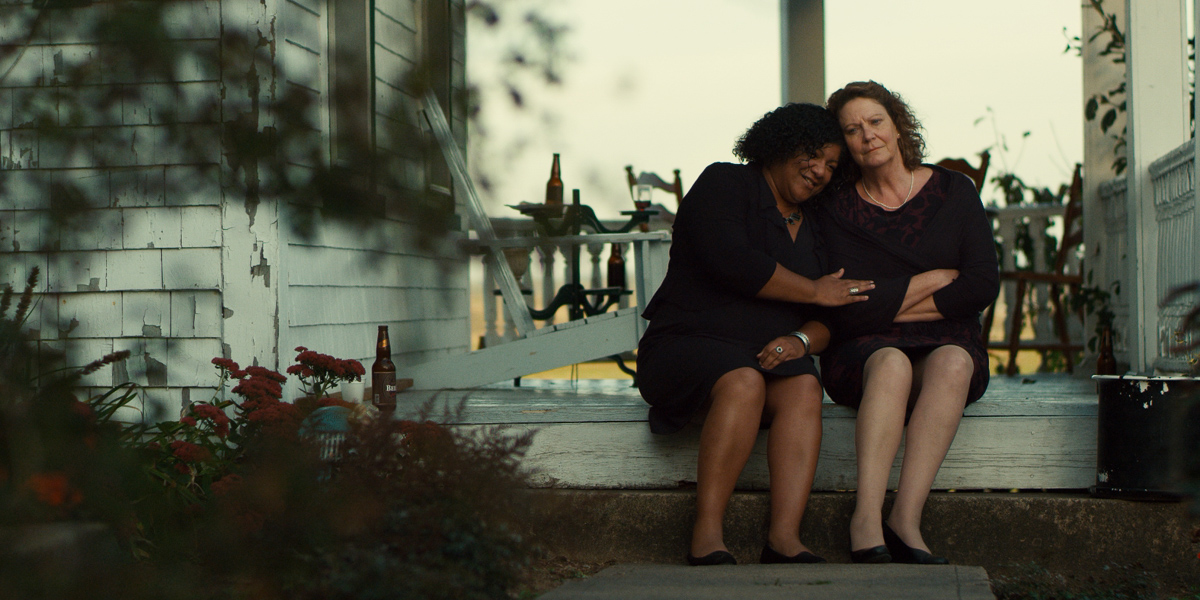Families are not cookie-cut. The term Black Sheep is used freely to describe a brother or sister that stands out from the rest in a wild/negative way. There are also brothers or sisters that become overachievers and the shining pride of the family. There’s competition, there’s rivalry and there is a loving bond that can never be broken. No matter how average your family might seem, there is something unique and diverse about each one. I am the third born of five children and our family dynamic contains drama, comedy, success, scandal and loyalty. I know I am very fortunate to have them all in my life but some of you may not feel the same way about your own family, but then again you may not be able to live without them. 
Thom Fitzgerald’s film Splinters addresses the idiosyncrasies of the family dynamic after the death of a father. It follows the success of his feature film debut The Hanging Garden, which won best Canadian feature at TIFF two decades ago. I’ve not had the opportunity to watch the film but Thom was gracious enough to take some time out of his busy schedule to discuss it. He was in New York at a Telefilm sponsored event for TIFF when we spoke.
“What was the inspiration behind your film Splinters?”
“It was actually a stage play. I was involved as a producer back in 2010. The playwright Lee-Anne Poole, who is a wonderful talented writer; I was struck by the freshness of the sexual identity of the story. Although she’s a generation younger than me, she made it clear that some of my earlier films were part of her inspiration.”
“Realizing you were drawn to the story behind the play, what was the impetus that led you to adapting it into a film?”
“I bought the rights fairly quickly, shortly after the production. I wrote it on and off over a period of years and I felt like the timing felt right now because Lee-Anne’s forward thinking writing has become more main stream. Peoples’ perceptions of fluid sexual identity have really expanded. For me, it was the right size of project. I had been doing a lot of television which is a bit more sprawling and this was the right inspiration at the right time.”
“When you adapted the play, did you find that you had lost anything or were you able to make it better by expanding on it?”
“Well, it’s different. I think when you make a movie the impulse is to open up the setting. The original play was set in a kitchen. We’re in the kitchen a little bit in the movie but also outside a lot. It’s a more cinematic approach but I wasn’t really too focused on hiding the stage play roots of the story. I myself enjoy a movie with lots of dialogue. I also made a point to keep the frame wide so we could see multiple faces in the shot as much as possible, because I wanted that energy of the real chemistry between the actors rather than cutting back and forth a lot.”
“Did you use a lot of long takes?”
“We did. If you look at the film, the camera is in a bit of a choreographic dance with the actors so that we are creating new shots without making cuts. We’ll go from a medium shot to a close up and back to a wide shot rather than doing it in editing. That is how they did it in early films. When films came out they really were an extension of stage drama. We moved very far away from that now but I’m very fond of those new movies. I really wanted to capitalize on the ensemble of the feeling of the play.”
“When you wrote the screenplay, did you change the storyline at all?”
“I added some elements to the story. We didn’t know a lot about the family outside of their home in the play. Their community plays a big role. In a stage play you don’t have 50 people show up to a funeral and that’s a big part of the movie along with the orchid. A piece of cinema allows you to enter a characters imagination. Belle’s thoughts of her father are cinematic in nature when introduced in the screenplay.”
“Are there a lot of flashback scenes in this film?”
“There are some memories of her father and some of them are in the form of flashbacks and some are more coexisting in her present. I wanted to speak to my idea of how memory works, which is not about people revisiting their past so much as the past intruding on our present. In the film, she’ll be walking up the driveway next to her dad in the moment rather than flashing back in time.”
“Would you categorize this film as purely drama?”
“Well, there’s also a lot of humour in it too because the brother and sister are coping with the loss of their dad through humour and teasing each other. Our heroine has a brother who has an interesting way of joking his way through the funeral. They’re in conflict with their mother who is a very traditionalist. It’s really a coming out story. Our young heroine came out as a young lesbian teenager to the great consternation of her mother and now that she’s older she’s desperately trying to hide the fact from her mom that she’s had a boyfriend for the last two years. It’s about how sexuality isn’t so fixed in people’s minds anymore and we have a whole new world to navigate between generations.”
“Is there a happy ending?”
“Mother-daughter relationships are complicated endings and never really resolved. At its heart it is a mother-daughter story. They get through the weekend; it all takes place over the weekend. Whether or not they’ll get along in the future is an open question. It is clear in the film that they love each other very much.”
“When you made this film, who did you have in mind as your audience?”
“I don’t really think that way. You might say it has some LGBT content but it’s a chick flick. It focuses on two women but it’s not really about empowerment, it’s about family. I think it will be for lovers of a good drama and absolutely mothers and daughters will want to see it together but they might disagree as they leave the theatre. I really made it for people like me. I mean, who doesn’t have a complicated family?”
“What would you say is the message in this film?”
“It’s more of an exploration of generational dynamics and in the end its characters are pushing each other to be there for one another. It’s to see people struggling really hard to come back together when they need each other. It can be done.”
“When did you start production and when did you finish?”
“We started it last September and finished on Saturday (Aug.18, 2018).”
Splinters is 94 min’s long and will make its world premiere at TIFF.

